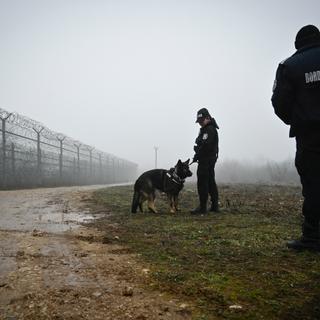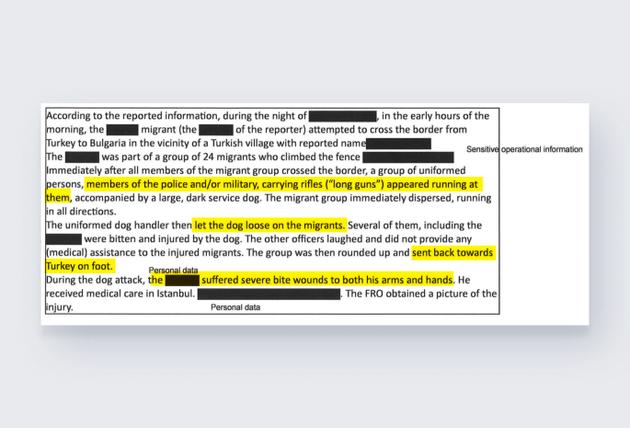


How the EU is overlooking Bulgaria's unlawful migrant pushbacks ahead of its Schengen entry
InvestigationInternal Frontex documents reveal systematic mistreatment of migrants by Bulgarian border guards. Despite repeated warnings, the European Commission welcomes the 'excellent results' achieved by Sofia, which is about to join the Schengen zone.
In the spring of 2022, Ali, a 16-year-old asylum seeker, walked into an open reception center in Bulgaria's capital, Sofia, to file a claim for asylum. His intention was to ask for protection and apply for family reunification with his mother and five other siblings, who were left behind in Syria and Lebanon.
But things didn't go as planned. Instead of having his claim administered in the reception center, he was taken to a place that "looked like a prison." During the night, together with around 50 other people they were loaded in cars of the border police and driven back for over 300 kilometers to Bulgaria's border with Turkey, without being registered or given any information about their rights to seek asylum.
"They made us walk to the fence that had cameras on it. After we passed the fence, there was something like a canal. At the same time, they were hitting the people," the boy recalled. "They took everything and hit me on the back, on the head. After that, they threw me in the canal." The group was told to go back to Turkey and not come back.
Pushbacks as a 'regular practice'
Testimonies of pushbacks like Ali's have generally been met with denials by the Bulgarian government. But a trove of internal Frontex documents seen by the Balkan Investigative Reporting Network (BIRN) and published by Le Monde reveals that the past 18 months have multiple reports of abuses recorded internally by the EU border agency's internal human rights watchdog. These records, obtained through freedom of information requests, contain details of alleged brutalities committed by Bulgarian officers taking part in Frontex operations, including people beaten with sticks, forced to strip naked, theft of belongings, verbal abuse and serious injuries inflicted by service dogs unleashed upon apprehended migrants, who are subsequently forced to cross back into Turkey.
The documents indicate that evidence of unlawful practices has been swept under the carpet not only by Bulgarian authorities but also by senior Frontex and European Commission officials. At the same time, the EU executive body has praised Bulgaria's "excellent" progress in border management, helping Sofia in its long-awaited bid toward the travel-free EU Schengen zone, which the country will soon join – air and sea border controls will be lifted on March 31, while land controls remain in place for now.

Local and international human rights NGOs have been sounding alarms about violent pushbacks in Bulgaria for many years. According to data produced by the Bulgarian Helsinki Committee, 5,268 alleged pushbacks, affecting 87,647 persons, took place in 2022 alone.
You have 80.25% of this article left to read. The rest is for subscribers only.
